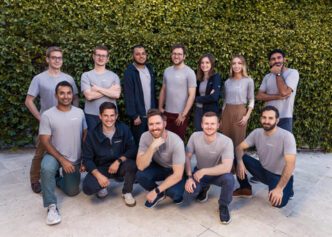After a record-breaking March, global venture funding hit the brakes in April 2025, falling to just $23 billion — a steep drop from last month’s $68 billion, according to Crunchbase. While the year-over-year figure stayed relatively flat, April marked one of the slowest months for venture capital in the past year, revealing cracks in investor momentum.
The sharp contrast is largely due to the absence of a mega-deal like March’s historic $40 billion injection into OpenAI, which alone had lifted that month’s numbers to the highest since 2022. In April, the biggest deal again came from the artificial intelligence sector — a $2 billion investment in Safe Superintelligence (SSI), an AI research company co-founded by former OpenAI chief scientist Ilya Sutskever. SSI’s valuation skyrocketed to $32 billion, adding $27 billion in value in just seven months.
AI Keeps Dominating Despite the Dip
Even with the slowdown, AI startup funding continued to lead the pack. AI companies attracted nearly $7 billion in April — around 30% of all venture dollars invested globally. That’s a strong signal that, despite market jitters, investors remain bullish on the long-term value of artificial intelligence innovation.
Beyond AI, healthcare and biotech startups raised a combined $4.1 billion, followed closely by the financial services sector with $3.8 billion. Other verticals drawing sizable rounds included cybersecurity, solar energy, space tech, and transportation, though none matched AI’s commanding share.
U.S. Startups Grab a Bigger Slice of Global Capital
The U.S. further strengthened its lead in global startup funding last month. American startups secured $14 billion — roughly 62% of the global total — up from 56% in 2024. That growing dominance highlights the continued appeal of U.S.-based innovation hubs despite macroeconomic headwinds.
China held second place with $1.7 billion, while the UK and India shared third, each bringing in just over $800 million in startup investment. While notable, these figures suggest a wider gap forming between the U.S. and the rest of the world in terms of venture confidence.
Big Names Stayed Active, but Investors Are Cautious
Prominent venture firms like Insight Partners, Andreessen Horowitz, Accel, and Khosla Ventures were among the most active players in April, especially in post-seed rounds. On the bigger deal front, private equity firms such as Greenoaks, Franklin Templeton, and General Atlantic took the lead — joined by VC firm Accel — in driving late-stage investments.
When broken down by stage, only 10% of total funds went to seed rounds. Early-stage startups received 37% of the funding pie, while 53% went to late-stage deals — underscoring a growing preference for backing more mature, proven businesses in today’s uncertain climate.
Economic Anxiety Casts a Shadow Over Q2
April’s funding pullback reflects broader market uncertainty, with tensions around U.S. tariffs and a potential trade war beginning to chill investor sentiment. Without major blockbuster deals like OpenAI’s, the flow of capital into startups may continue to waver.
This cautious approach from investors could signal slower funding activity in Q2, especially if economic instability persists. Founders may face tighter capital markets and longer deal timelines, particularly at the early stages.
While artificial intelligence continues to shine as a bright spot, the broader venture landscape is showing signs of fatigue — and founders may need to brace for a more selective, value-focused fundraising environment ahead.













